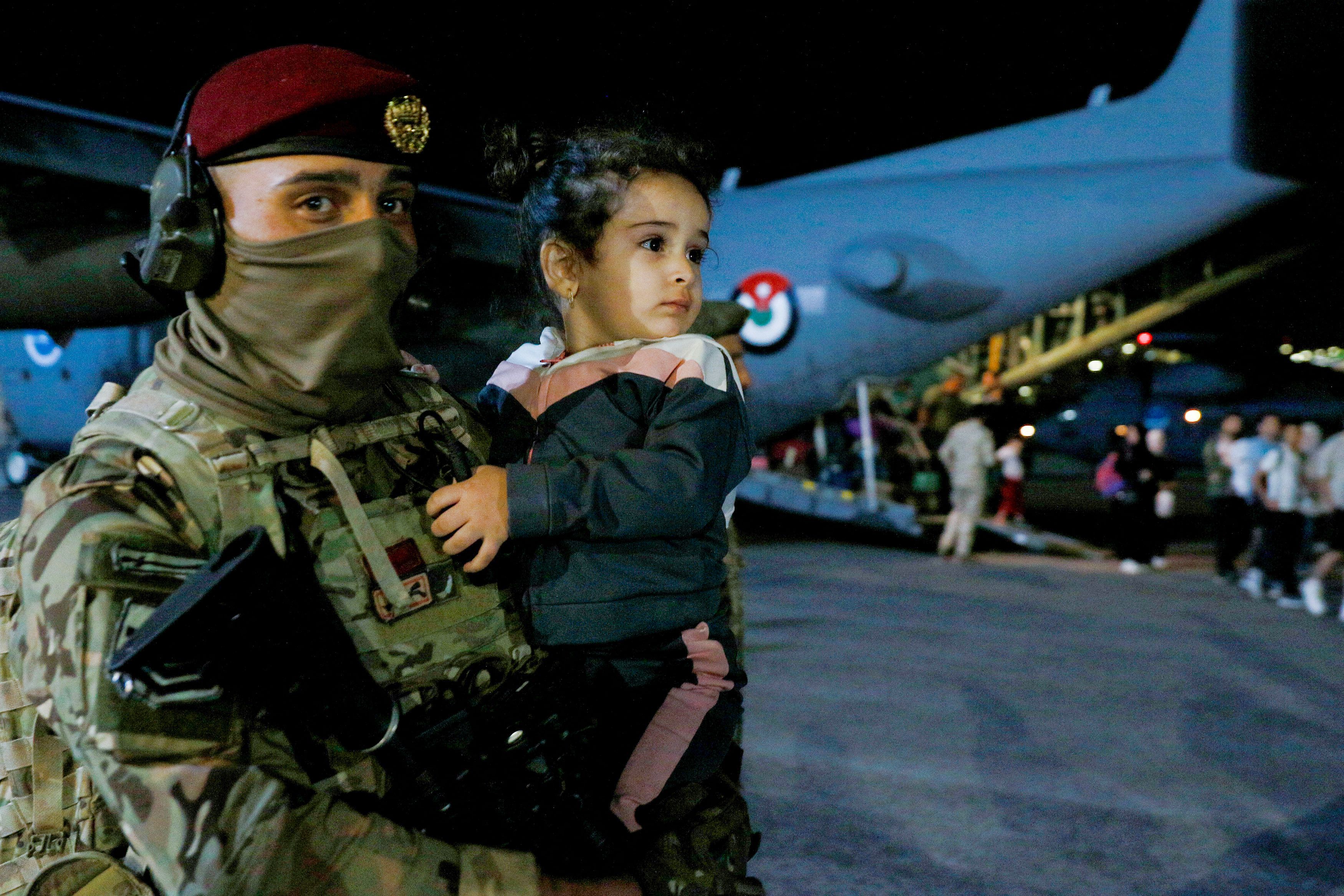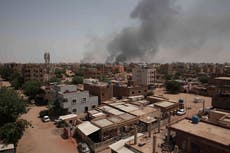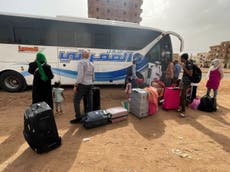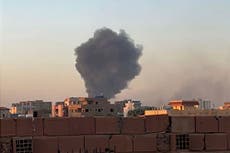Child soldiers, death and despair: We must secure peace in Sudan
It is always much harder to enforce peace than it is to start a war, writes the chair of the Foreign Affairs Select Committee Alicia Kearns


Your support helps us to tell the story
From reproductive rights to climate change to Big Tech, The Independent is on the ground when the story is developing. Whether it's investigating the financials of Elon Musk's pro-Trump PAC or producing our latest documentary, 'The A Word', which shines a light on the American women fighting for reproductive rights, we know how important it is to parse out the facts from the messaging.
At such a critical moment in US history, we need reporters on the ground. Your donation allows us to keep sending journalists to speak to both sides of the story.
The Independent is trusted by Americans across the entire political spectrum. And unlike many other quality news outlets, we choose not to lock Americans out of our reporting and analysis with paywalls. We believe quality journalism should be available to everyone, paid for by those who can afford it.
Your support makes all the difference.The prime minister has confirmed the first RAF flight evacuation has been completed. While this is welcome news, the reality on the ground remains extremely unsafe.
This evacuation has been facilitated by a 72-hour ceasefire negotiated by the USA and Saudi Arabia between the Sudanese army and the Rapid Support Forces, which had been transitioning towards incorporation into the army before the outbreak of hostilities.
This 72-hour ceasefire is a brief but vital opportunity to get as many people out as quickly as possible. I am urging the government to commit as many resources as quickly as possible, as there is a very real danger fighting will return.
British nationals are advised to make their way to the Wadi Saeedna airfield north of Khartoum to board evacuation flights. The advice to remain indoors and not to travel until contacted by the Foreign Office has been lifted. There will be a time to discuss what could have been done faster but for now, we must all focus on the task at hand. Speed is of the essence.
The number one priority of any government is to keep its citizens safe, be it at home or abroad. As such, the current focus for the prime minister, Foreign Office and military is how we can get our people out without endangering their lives.
This is no easy task, as law and order in Khartoum has given way to a quasi-anarchical struggle between two competing forces with shaky command structures. Reports of child soldiers roaming the streets of Khartoum highlight the limitations of any ceasefire, as armed individuals high on adrenaline and looting continue to pose a serious threat.
It is always much harder to enforce peace than it is to start a war. While evacuating British nationals is rightly the government’s number-one priority, we also need to work tirelessly to try to prolong this ceasefire into a more permanent peace.
I am deeply concerned by reports that Omar Bashir, Sudan’s former dictator of 30 years, has escaped from Kober prison. Bashir has been indicted by the International Criminal Court since 2009 for a string of crimes including murder, extermination, forcible transfer, torture, rape, war crimes, crimes against humanity and three counts of genocide.
Bashir’s arrest in 2019 after popular protests was seen by many Sudanese as a turning point towards democracy. The last thing this situation needs is Bashir’s return or for him to continue to evade justice, but the longer instability perseveres the greater the opportunities are for him to rebuild a power base. It is vitally important that if he has escaped, he is recaptured, and I hope the government will be highlighting the dangers of his escape to both Abdel Fattah al-Burhan, the head of the Sudanese army, and Hamdan Dagalo, who commands the paramilitary Rapid Support Forces.
While this conflict remains between two warring factions, peace is a possibility, but any new combatants would endanger what hope remains. Conflict and instability also open the door to more malign activities from hostile states. Russia’s Wagner mercenary group, responsible for atrocities across the continent and in Ukraine, control several gold mines in the country, providing the Russian state with much-needed revenue.
The RSF’s General Dagalo has announced he supports the building of a Russian naval base in Port Sudan, the consequences of which would be dire for peace and security across the region.
Sudan has already endured the Darfur genocide, and we are now faced with the possibility of yet more violence, death, and despair. We have a small time frame to remove our people from this precipice and we need to take it. If you or your loved ones are in Sudan, please make your way to the Wadi Saeedna airfield.
The desperation of this situation cannot be overstated, and the response must be swift, decisive, and robust – many lives depend on it.



Join our commenting forum
Join thought-provoking conversations, follow other Independent readers and see their replies
Comments